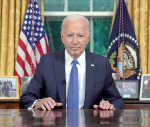You are here
Royal Cultural Centre, Irbid commerce chamber to install solar cooling units
By Hana Namrouqa - Sep 11,2014 - Last updated at Sep 11,2014

AMMAN — Solar cooling units will be installed at the Royal Cultural Centre (RCC) and the Irbid Chamber of Commerce to reduce power consumption and encourage the use of renewable energy resources, under deals signed Thursday.
The Ministry of Environment, German Development Cooperation (GIZ), the RCC and the Irbid Chamber of Commerce signed the agreements for the projects.
The two solar cooling units will be the third and fourth projects to be implemented in the Kingdom under an overall programme designed to introduce thermal cooling technology to Jordan and the region.
Two solar cooling units have been installed at the Social Security Corporation and the German-Jordanian University, Environment Minister Taher Shakhshir said during the signing ceremony.
“It is expected that the two units will be operational next month; thus Jordan will be the first country in the region to utilise such technology, which saves energy and protects the environment,” Shakhshir said.
On average, demand for air conditioning is growing in Jordan by 8 per cent every year, according to the ministry, which expects the number of air conditioning units in Jordan to more than double within the next 10 years.
Ministry officials underscored that connecting solar thermal applications with absorption chillers is a state-of-the-art technology which provides decentralised fuel-saving solutions for the Kingdom, especially since 96 per cent of its energy demand is imported at high costs.
The installation of the two solar cooling systems will cost around 800,000 euros (around JD733,200), Ghazi Odat, director of the Environment Ministry’s ozone project, told The Jordan Times, noting that the two institutions will cover 5 per cent of the project’s cost.
RCC Director General Mohammad Abu Summaqa said the solar cooling unit which will be installed at the centre will reduce its electricity bill.
“The centre pays JD100,000 annually for air conditioning alone. The sum is taken from the centre’s allocations for activities and projects. Once the units are operational, this money will be allocated for supporting creativity and cultural events,” Abu Summaqa said at the event.
Barbara Schweiger, head of the solar cooling project at the GIZ, said the German organisation seeks to promote the use of renewable energy and introduce environmentally sound air conditioning.
“By this, we make the optimal use of solar resources, save cost and implement a highly innovative project. The joint efforts will result in climate-friendly cooling in the region,” Schweiger noted.
The Kingdom, which has 330 days of sunshine per year, has one of the highest annual daily averages of solar irradiance in the world, according to environmentalists, who have repeatedly called for using the country’s abundant solar power for energy generation.
Renewable energy currently contributes less than 1 per cent of Jordan’s energy mix, according to experts, who indicate that the Kingdom has significant amounts of untapped wind and solar energy, with wind speeds as high as 7.5 metres per second, up to 11.5 metres per second in hilly areas, and direct solar radiation equalling 5.5 kilowatt hours per square metre per day.
Related Articles
AMMAN — Jordan is the first developing country utilising solar energy for the cooling and heating of buildings, Minister of Environment Yase
AMMAN — The Cabinet on Sunday approved delivering electricity to single-detached dwellings in poverty pockets using solar power units, the J
AMMAN — Energy Minister Saleh Kharabsheh on Sunday announced that 17 schools in various regions of the Kingdom will be provided with solar c















